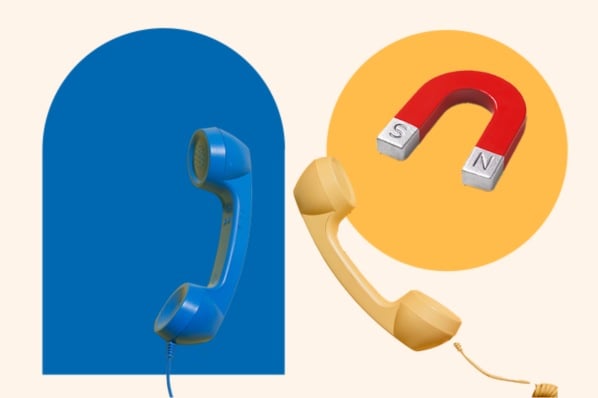When you’re alone, deciding where to eat doesn’t usually take long. If you’re with someone else, it’s a slightly lengthier process -- they have different (sometimes conflicting) preferences, dietary restrictions, and budgetary restraints.

Add two more people to your dinner plans, and you might spend an hour selecting the restaurant.
While dinner plans are low stakes, the difficulty of getting multiple people on the same page has serious implications for modern salespeople.
CEB’s latest research shows the average number of stakeholders in a B2B purchasing decision has risen to an all-time high of 6.8, according to chief storyteller Brent Adamson. It’s no longer enough to prove your product’s value and relative superiority. To close the deal, you must also show each stakeholder why your offering meets their specific needs and buying criteria.
The good news? You don’t have to pull off this feat on your own. In The Challenger Customer, Adamson and CEB executive director Matt Dixon suggest partnering with a “Mobilizer,” a customer with internal influence who can help reps sell the entire group. This champion provides information on their colleagues’ priorities and communication styles while acting as an internal salesperson.
Salespeople can identify Mobilizers by these four traits.
1) They’re Focused On the Greater Good
Mobilizers tend to prioritize their team, department, and organizational goals over role-specific and personal objectives. This focus on the greater good earns them respect, trust, and an excellent reputation across the company. If a Mobilizer endorses your product, her coworkers will listen -- they know she won’t back an idea that doesn’t bring the business value or further its aims.
Ask your point of contact, “What do you hope to achieve within the next X months?”
If she immediately launches into self-promoting accomplishments, such as, “I’d like to get promoted,” “I’m aiming to sell Y amount,” or “I want to transition into Z,” her highest concern is herself. This selfishness may lead others within the company to distrust her. While this doesn’t mean she’s a bad fit prospect or an unimportant stakeholder, she’s not the Mobilizer you’re looking for.
Conversely, if she says, “I want to help my team sell X units,” “I’m planning to build a process for Y,” or “I’d love to make our company the go-to source for Z,” she’s clearly focused on the organization’s bottom line, not her own. Her colleagues likely put a lot of stock in her opinion.
2) They Get Other People to Show Up
Learn how much internal clout your contact has by asking her to organize a meeting with the other stakeholders. If everyone she invites makes an appearance, she has sway within her company. Having a significant number of invitees decline, on the other hand, suggests your connection lacks influence.
3) They Ask Questions and Challenge Your Statements
It’s a positive sign if your contact doesn’t introduce you to other stakeholders until she’s fully verified your claims and asked thoughtful, probing questions.
This healthy skepticism is common to Mobilizers. They’re thorough with everyone, not just salespeople -- and this thoroughness lends credence to their judgments. If a Mobilizer believes your product will bring results, her coworkers will typically back you as well.
Accepting your statements at face value can also be a sign your contact isn’t serious about buying. After all, if she knows she has no interest in your product, she doesn’t need to dig into your assertions to make sure they hold up.
4) They Follow Through On Their Commitments
Salespeople often gravitate toward “Talkers,” Adamson and Dixon’s term for customers who are happy to chat but ultimately do little to drive a purchase forward.
Talkers willingly share information and spend time with reps. Yet they’re far less inclined to take concrete action on the rep’s behalf, such as making key introductions, doing research, and so on.
Mobilizers are less accessible than Talkers.
“None of them are necessarily looking to talk with you,” Adamson and Dixon write. “They’re focused on getting things done. They’re constantly pushing themselves and their companies to think and act differently.”
In other words, if your contact is always happy to fit you into her schedule, she may not be the best person to work with. You’re looking for an internal advocate who only grants you time after you’ve proven your value.
A word of caution: A prospect’s “accessibility” is often conflated with their title. However, a C-suite executive might be a Talker, and a mid-level manager may be a Mobilizer. Adamson and Dixon’s research revealed more than 30% of senior executives are Talkers.
Working with the right person can mean the difference between closing and losing a deal. Be selective about your internal advocate, and you’ll reap the rewards.

![How to Use BANT to Qualify Prospects in 2024 [Expert Tips]](https://www.hubspot.com/hubfs/bant-questions-6606f7b6c0d9e.webp)


![21 Signs Your Buyer Is a Poor Fit [Sales Process Checklist], According to HubSpot's Former Sales Director](https://www.hubspot.com/hubfs/Bad%20fit%20checklist.jpg)




